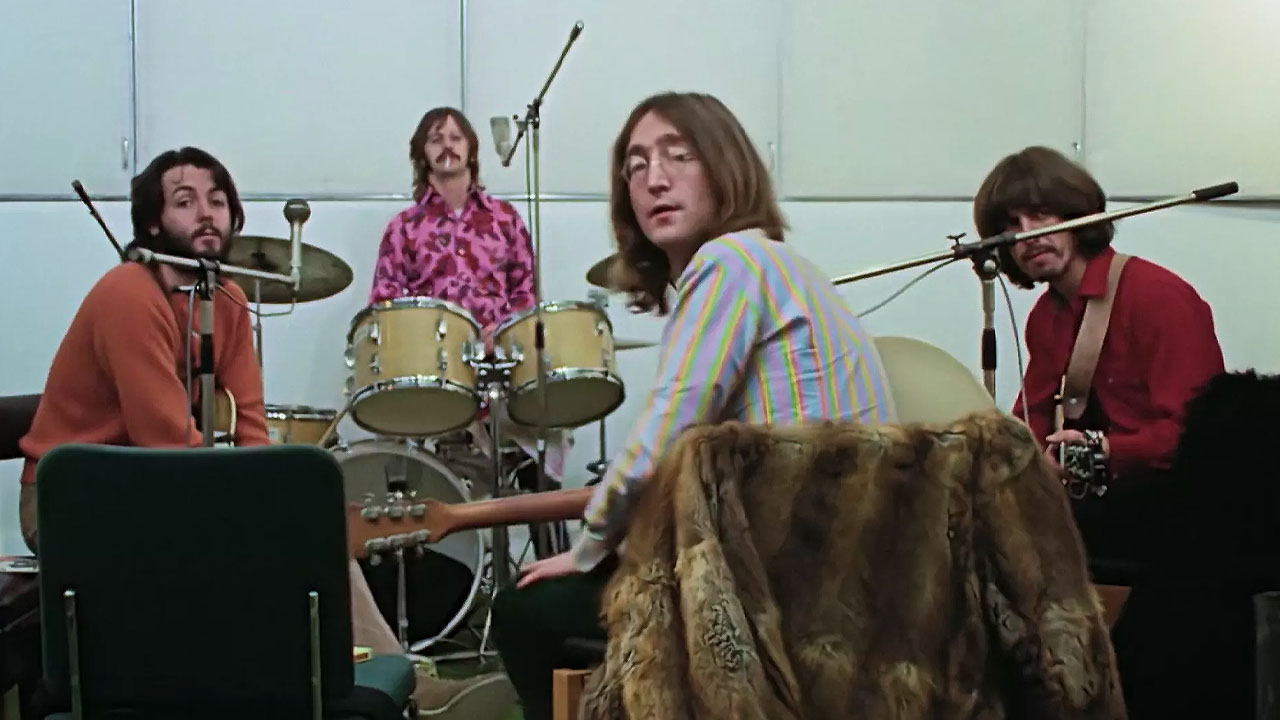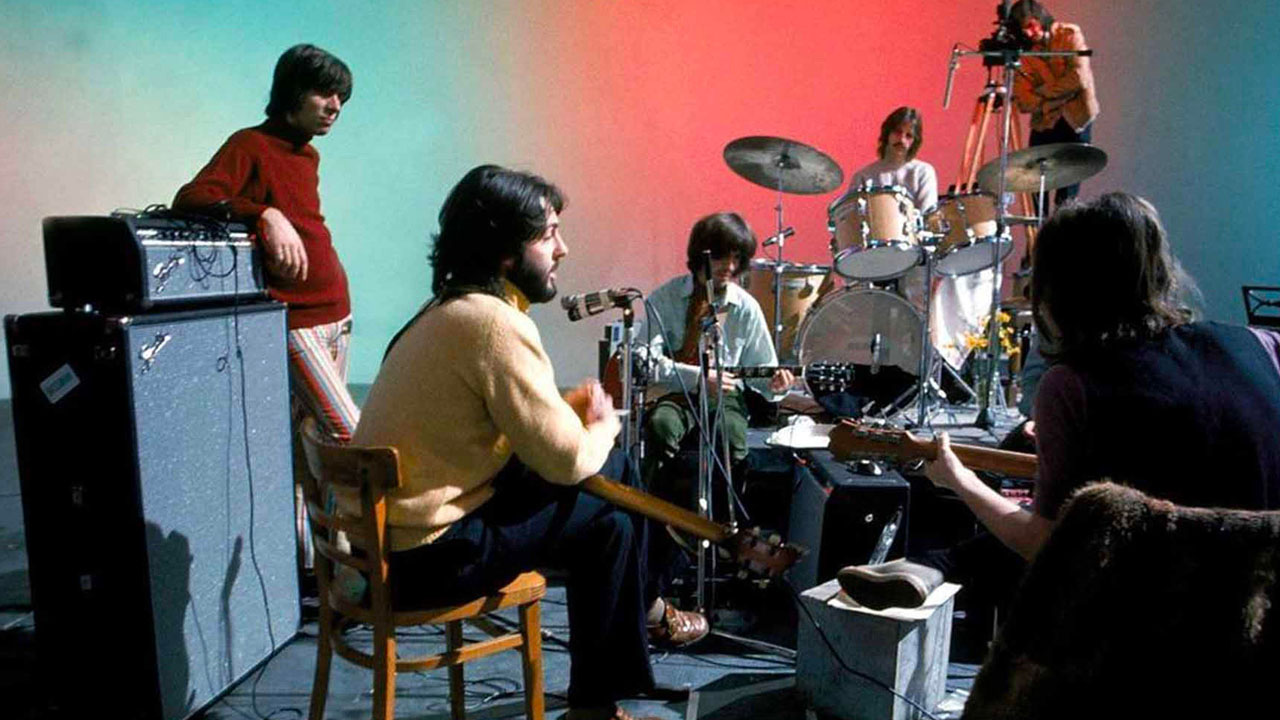Peter Jackson’s The Beatles: Get Back is full of priceless moments

Peter Jackson’s three-part Beatles documentary, compiled from over 55 hours of largely unseen footage, sees the band at work and sometimes at odds during making of Let It Be. The band’s self-imposed pressure to innovate hangs over The Beatles: Get Back as much as any internal friction, writes Tony Stamp.
I might never get Get Back out of my head. The song that gives Peter Jackson’s Fab Four epic its title is composed on camera early in the film, then rehearsed at least twenty times during the remaining seven or so hours. The duration of this fly-on-the-wall behemoth has not gone unremarked upon, nor has Jackson’s penchant for inflated runtimes. The fact that I never got sick of hearing Get Back, but maybe grew to like it even more, is surely vindicating for the legions of fans craving as much Beatles as possible.
Over fifty years after they broke up, online sentiment around the band runs surprisingly high. Just today I saw a music writer suggest anyone not sufficiently adoring was being ‘facile’, and someone who hadn’t even seen the doc yet called naysayers ‘snooty’. I will say that for casual fans, low-key studio rehearsal and chit chat is going to become punishing after about thirty minutes. But I’m not sure there’s such a thing as a casual Beatles fan.
Speaking for myself, I remain in awe of what they achieved, forcing technology and an entire industry to keep pace with their incredible output. That they did it all in less than ten years is staggering; there will never be another band this well-regarded because they kept doing things no one else had yet.
And in 1969 when this footage was captured, they knew it. Despite being a return of sorts to their roots—all playing at once, re-learning how to be a band—Paul McCartney in particular is haunted by the idea of repeating themselves. Numerous times playing stops for existential discussions about The Beatles, their drive to keep innovating always present. This was a mere six years after their first album.
That pressure hangs over the series as much as any internal friction. Jackson’s revelation after watching the sixty-odd hours of footage given to him was how celebratory the mood was, rather than the dour slog that’s become received wisdom. There is the feeling of things unsaid in part one, but parts two and three reveal a group of twenty-somethings determined to have fun. As many have noted, the addition of Billy Preston on keys after the band relocates to Apple Corps studio is like a bolt of lightning through the band, the pressure seeming to melt away, replaced with the pure joy of music-making.

A note that precedes each episode says that audio-only recordings have been ‘supplemented with representative pictures’. This is particularly noticeable in part one, when the filmmakers attempt to roughly match audio conversations with the mouths of Beatles filmed at separate times. This results in some pretty frenetic editing and a lot of shots of the backs of heads, and can feel like you’re seeing an artificial construct rather than a reflection of reality. It perhaps suggests an attempt at perfectionism in post-production when something more abstract might have sufficed. In all fairness the end of that pre-credits text says ‘an accurate portrait of the events depicted’ was attempted at all times, and I don’t doubt that’s true.
Regardless, my kernel of cynicism about this was dispelled almost completely in parts two and three, which are full of moments that play out in full on camera (presumably they were just filming more by this stage). For fans these moments are priceless: candid, unflinching looks at the group’s personalities and the creative process. It’s also worth pointing out the number of songs performed that would end up on Abbey Road or the band’s forthcoming solo albums. The rooftop session, when it arrives, is cathartic, and an appropriate conclusion, but I admit I was amused that the remaining recording sessions continue during the credits, creating the feeling that even though the series has ended, The Beatles will always persist.


















